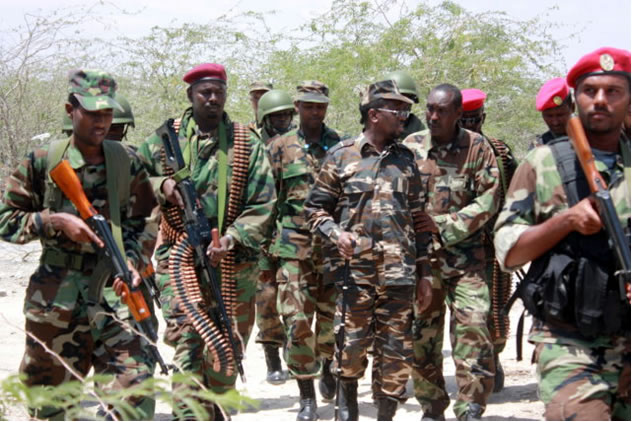
by Abdihakim Aynte
Tuesday, March 08, 2011
With prospect of a genuine alternative looks pretty precarious – or murkier than ever--, within only six months or so, in August this year to be precise, the current term of the TFG will formally come to an end, according to the charter of Transitional Federal Government, aka, TFG. Given its political weakness and demonstrated ineptitude to hold its own against the Al-Shaabab militants, it is not clear what the people of Somalia can expect after August, 2011.
Will another transitional government be formed to carry on from where the TFG will leave off? If such a government is constituted, what chance will it have against the Al-Shaabab? What about AMISOM, the Pan-African peace-keeping force that has been propping up the TFG? Will it continue pursuing its current mandate indefinitely or is there a chance that it could be withdrawn from the country altogether? What would be the consequences for Somalia and the international community if Al-Shaabab suddenly wins control of the whole of Somalia?
It is now 20 years since Somalia ceased to be a cohesive and unified state following the ouster of former President Mohamed Siad Barre. Over this period, the country has been dogged by senseless violence, religious radicalism, warlordism and some of the ugliest manifestations of marine piracy. Thousands of innocent Somali citizens have been killed in the internecine warfare and thousands more have fled their motherland for safer havens abroad.
What pains us Somalis most, 20 years after our country dissolved into political chaos, is that there seems to be no clear way forward yet. Hopelessly, we see no light at the end of the long -- dark tunnel. As the international community shifts its attention to Libya and the rest of the Arab worlds popular upraise, the situation in Somalia steadily deteriorates as the combatants seek to take advantage of their new position beyond the international radar.
Over the last three months, the situation in Somalia has been horribly worsening. The toothless Parliament has unilaterally extended its tenure by another three years, a move that is not only a self-serving but politically reckless. Moreover, the international community, including United States, has spurned the decision and called it disappointing decision taken in hasty. More appallingly, the semi-autonomous region of Puntland has effectively expelled -- or divorce -- the TFG from its territory. And it sadly discontinued its full cooperation with government in Mogadishu.
Furthermore, fighting between Al-Shaabab and the TFG forces has steadily escalated of late, leaving the government to control additional blocks or streets at its disposal for the first time in the capital city of Mogadishu, Somalia. This week, a senior Al-Shaabab operative publicly threatened to strike inside Kenya ostensibly because of Kenya's support for the TFG side of this conflict. Every single day that passes, the Somali situation gets more despairing and more explosive.
The Somalia problem is apparently not being made any easier by the presence of AMISOM within the city of Mogadishu. Even though it was supposedly meant to be a peace-keeping force, critics now accuse it of frequently breaching that peace itself by recklessly shelling on densely populated civilian zones within the city.
What is the way forward for Somalia beyond August, 2011?
The first step is for the international community, especially the neighboring countries, to realize that the situation in Somalia is much more dangerous and explosive that it might appear. Decisive action needs to be taken immediately to mitigate the consequences of Somalia's continuing statelessness and the ever-growing influence of the Al-Shaabab militants who, undisputedly, now control over 75 per cent of the country, if not more. Secondly, perhaps the most important one, is for the Somali stakeholders to come up with genuine Somali-solution and put aside their grievances and say "enough is enough for 20 years".
A great opportunity for constructive engagement now looms as August approaches. The international community needs to take advantage of the expiry of the current mandate of the TFG to review all its options for Somalia and try to identify a more sustainable and people-friendly solution. If this is not done immediately, the ultimate cost of ignoring Somalia, in both blood and tears, could be horrendous.
Because of its special relationship to Somalia, Kenya needs to play a leading role in these efforts to break through this Somalia imbroglio. The emphasis of AMISOM -- and I emphasize here -- needs to shift from "peace-keeping" to "peace-making" or "state-building", for that's the only effective way to overcome instability. And the international community needs to understand that if it lets Somalia turn itself into the regional hub for Jihadist terrorist organizations, piracy, another 20 years of failed-state, reversing the situation could cost thousands of lives and endanger the global security.
Abdihakim Aynte is the director of Somali Forum for Progress, a think-tank initiative. He can be reach at: [email protected]